第26章 CHAPTER VII(4)
"No," said she, "but pity it, side with it, not consider it so bad. The world has faults; glaciers have crevices, mountains have chasms; but is not the effect of the whole sublime? Not to admire the mountain and the glacier because they can be cruel, seems to me ... And the world is beautiful."
"The world of nature, yes. The world of men?"
"Yes."
"My love, I suspect you to be thinking of the world of ballrooms.
"I am thinking of the world that contains real and great generosity, true heroism. We see it round us."
"We read of it. The world of the romance writer!"
"No: the living world. I am sure it is our duty to love it. I am sure we weaken ourselves if we do not. If I did not, I should be looking on mist, hearing a perpetual boom instead of music. I remember hearing Mr. Whitford say that cynicism is intellectual dandyism without the coxcomb's feathers; and it seems to me that cynics are only happy in making the world as barren to others as they have made it for themselves."
"Old Vernon!" ejaculated Sir Willoughby, with a countenance rather uneasy, as if it had been flicked with a glove. "He strings his phrases by the dozen."
"Papa contradicts that, and says he is very clever and very simple."
"As to cynics, my dear Clara, oh, certainly, certainly: you are right. They are laughable, contemptible. But understand me. I mean, we cannot feel, or if we feel we cannot so intensely feel, our oneness, except by dividing ourselves from the world."
"Is it an art?"
"If you like. It is our poetry! But does not love shun the world?
Two that love must have their sustenance in isolation."
"No: they will be eating themselves up."
"The purer the beauty, the more it will be out of the world."
"But not opposed."
"Put it in this way," Willoughby condescended. "Has experience the same opinion of the world as ignorance?"
"It should have more charity."
"Does virtue feel at home in the world?"
"Where it should be an example, to my idea."
"Is the world agreeable to holiness?"
"Then, are you in favour of monasteries?"
He poured a little runlet of half laughter over her head, of the sound assumed by genial compassion.
It is irritating to hear that when we imagine we have spoken to the point.
"Now in my letters, Clara . . ."
"I have no memory, Willoughby!"
"You will, however, have observed that I am not completely myself in my letters . . ."
"In your letters to men you may be."
The remark threw a pause across his thoughts. He was of a sensitiveness terribly tender. A single stroke on it reverberated swellingly within the man, and most, and infuriately searching, at the spots where he had been wounded, especially where he feared the world might have guessed the wound. Did she imply that he had no hand for love-letters? Was it her meaning that women would not have much taste for his epistolary correspondence? She had spoken in the plural, with an accent on "men". Had she heard of Constantia? Had she formed her own judgement about the creature?
The supernatural sensitiveness of Sir Willoughby shrieked a peal of affirmatives. He had often meditated on the moral obligation of his unfolding to Clara the whole truth of his conduct to Constantia; for whom, as for other suicides, there were excuses.
He at least was bound to supply them. She had behaved badly; but had he not given her some cause? If so, manliness was bound to confess it.
Supposing Clara heard the world's version first! Men whose pride is their backbone suffer convulsions where other men are barely aware of a shock, and Sir Willoughby was taken with galvanic jumpings of the spirit within him, at the idea of the world whispering to Clara that he had been jilted.